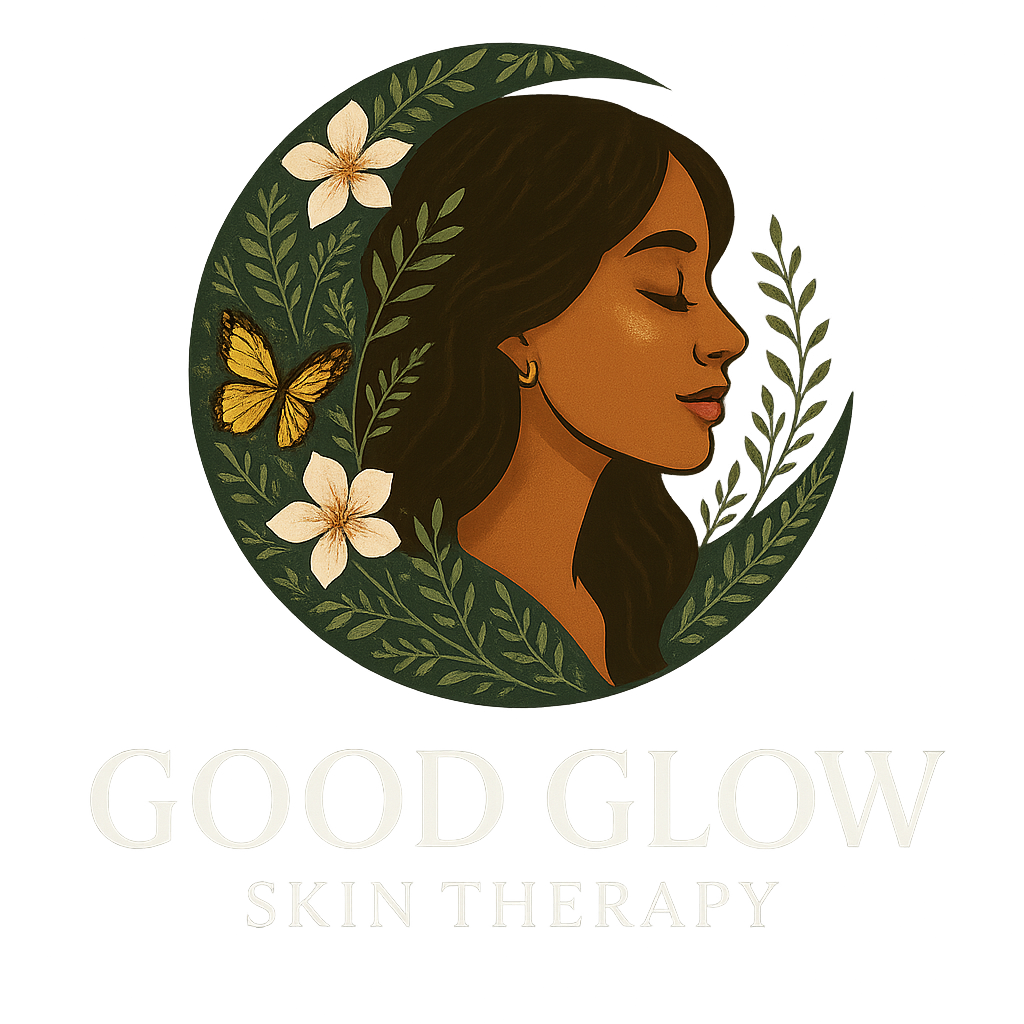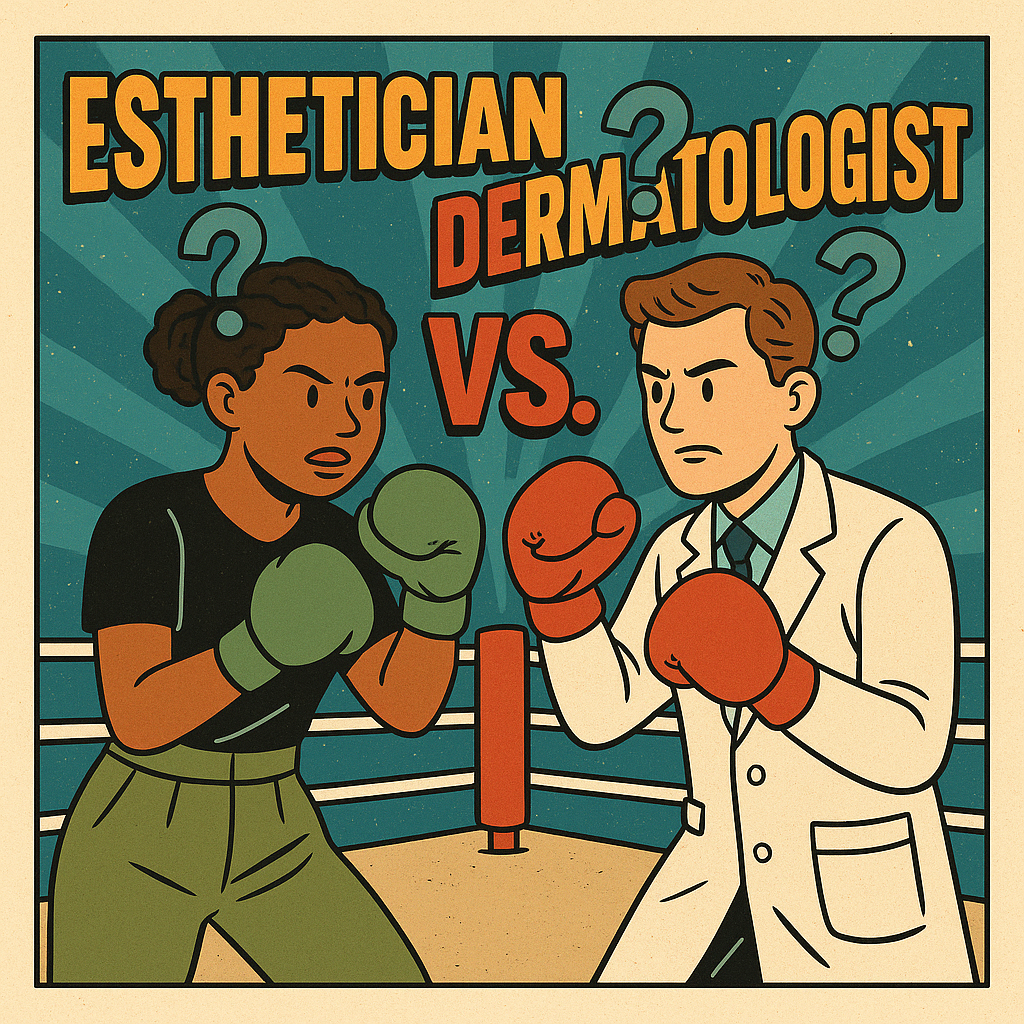Dermatologist or Esthetician? Understanding the Difference—And How We Help Long-Term
Because skincare isn’t one-size-fits-all. And neither is your skin team.
When it comes to taking care of your skin, it’s easy to feel overwhelmed by options. You might be asking:
Should I see a dermatologist or an esthetician?
What’s the difference between the two?
Who’s really going to help me with my long-term skin goals?
The truth is — both professionals play an important role in skin health, but in very different ways. Knowing the difference can help you build the best plan for your skin’s needs today and in the future.
This post isn’t about choosing one over the other. It’s about understanding how dermatologists and estheticians complement each other — and why working with an esthetician may be the key to unlocking healthy, glowing skin long-term.
What Does a Dermatologist Do?
Dermatologists are medical doctors who specialize in diagnosing and treating diseases and conditions related to the skin, hair, and nails. They complete medical school and a dermatology residency, and they are licensed to:
Diagnose skin conditions like eczema, psoriasis, rosacea, and skin cancer
Prescribe oral and topical medications
Perform medical procedures (biopsies, mole removals, laser treatments, etc.)
Manage chronic or severe skin diseases
Treat acne with prescription-grade medications or injections
Dermatologists are essential when you need a clinical diagnosis or medical treatment — especially for conditions that require prescription management or lab testing.
What Does an Esthetician Do?
Estheticians are licensed skin care professionals who specialize in improving and maintaining the health and appearance of the skin through treatments, education, and personalized product guidance. Estheticians are not doctors, and we don’t diagnose or prescribe — but we do offer a different kind of support that’s just as crucial for long-term skin success.
Estheticians are trained to:
Analyze skin types and conditions
Perform hands-on treatments like facials, exfoliation, enzyme therapy, light peels, and more
Recommend professional-grade homecare routines
Educate clients on proper product usage and ingredient selection
Support barrier repair, hydration, texture, pigmentation, and acne management
Track skin progress with consistency over time
Where Dermatologists Shine — and Where Estheticians Fill the Gap
In many cases, clients see a dermatologist once or twice a year for a 5–10 minute appointment. That can be incredibly helpful — especially if you’re struggling with:
Persistent or cystic acne
Suspicious moles or rashes
Chronic inflammatory conditions
Skin infections or disorders requiring medication
But dermatologists often focus on diagnosis and treatment, not ongoing skincare maintenance or routine education. They may recommend a short list of pharmacy products or in-house brands, but rarely have the time (or training) to guide you through:
Product layering and compatibility
Ingredients for your specific skin tone or lifestyle
Seasonal skin changes
Long-term glow goals
That’s where estheticians come in.
The Esthetician Advantage for Long-Term Skin Care
Here’s what makes estheticians like myself an essential part of your skin journey:
1. Real Relationships + Routine Support
I see many of my clients monthly or seasonally. We track your skin’s behavior over time, adjust your homecare based on how your skin’s responding, and offer real-time guidance you won’t find in a quick medical visit.
2. Deep Product Knowledge
Estheticians are trained to understand ingredients, how they interact, and how to build a regimen that works with your skin — not against it. We aren’t limited to pharmacy shelves. We know the difference between a nourishing formula and a marketing gimmick.
3. Skin Education
You’ll never leave wondering what to do next. I explain what we’re doing, why it matters, and how to keep your skin thriving in between treatments.
4. Preventative + Proactive Care
Before your skin reaches a state of crisis, we’re already working to keep it balanced, clear, and strong. Whether it’s early pigment changes, mild breakouts, or dullness — we address the issue before it becomes a problem.
It’s Not Either/Or — It’s “Who and When?”
Dermatologists and estheticians don’t compete — we complement.
At Good Glow Skin Therapy, I often refer clients to dermatologists when something is outside of my scope of practice. Likewise, I support clients who’ve been prescribed medications and need guidance on rebuilding their barrier or choosing non-irritating products.
If you’ve ever left a dermatologist appointment feeling dismissed or still unsure what products to use…
If you’ve felt overwhelmed by skincare aisles or skincare TikTok…
If you’re ready to treat your skin with long-term consistency instead of short-term fixes...
An esthetician might be exactly what your skin needs.
Have questions about where to start, or whether esthetic treatments are right for you? I’d love to chat.
Let’s build a long-term skincare plan — one that actually fits your skin and your life.
Stay glowing,
Diana
Founder, Good Glow Skin Therapy

